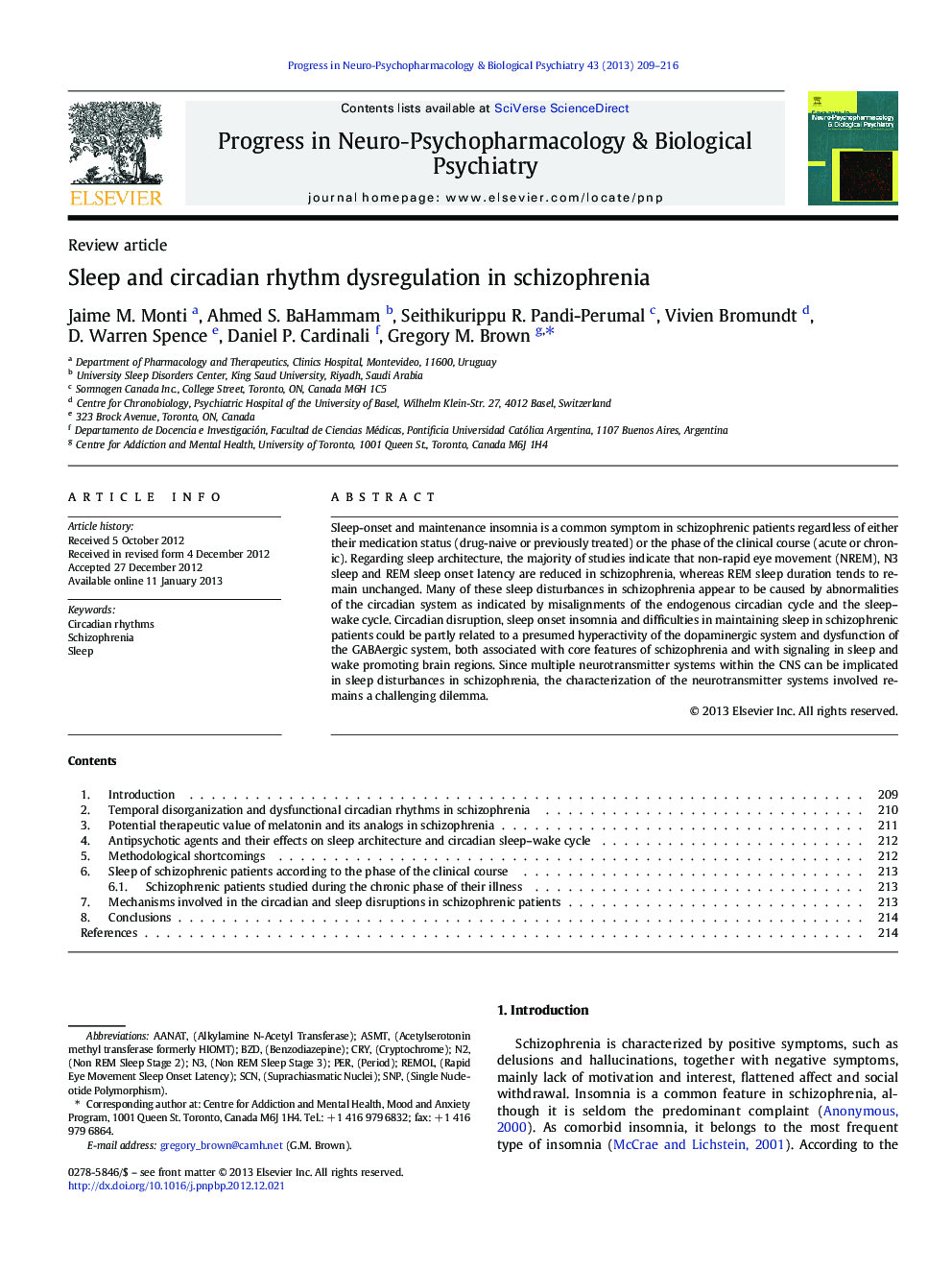| Article ID | Journal | Published Year | Pages | File Type |
|---|---|---|---|---|
| 5844770 | Progress in Neuro-Psychopharmacology and Biological Psychiatry | 2013 | 8 Pages |
Sleep-onset and maintenance insomnia is a common symptom in schizophrenic patients regardless of either their medication status (drug-naive or previously treated) or the phase of the clinical course (acute or chronic). Regarding sleep architecture, the majority of studies indicate that non-rapid eye movement (NREM), N3 sleep and REM sleep onset latency are reduced in schizophrenia, whereas REM sleep duration tends to remain unchanged. Many of these sleep disturbances in schizophrenia appear to be caused by abnormalities of the circadian system as indicated by misalignments of the endogenous circadian cycle and the sleep-wake cycle. Circadian disruption, sleep onset insomnia and difficulties in maintaining sleep in schizophrenic patients could be partly related to a presumed hyperactivity of the dopaminergic system and dysfunction of the GABAergic system, both associated with core features of schizophrenia and with signaling in sleep and wake promoting brain regions. Since multiple neurotransmitter systems within the CNS can be implicated in sleep disturbances in schizophrenia, the characterization of the neurotransmitter systems involved remains a challenging dilemma.
⺠Sleep onset and maintenance insomnia are common in schizophrenia. ⺠N3 sleep and REM sleep onset latency are reduced. ⺠Sleep disturbances may be caused by circadian system abnormalities. ⺠Melatonin agonists may be useful treatments for the sleep disorder. ⺠Treatment of sleep abnormalities will improve patient's quality of life.
